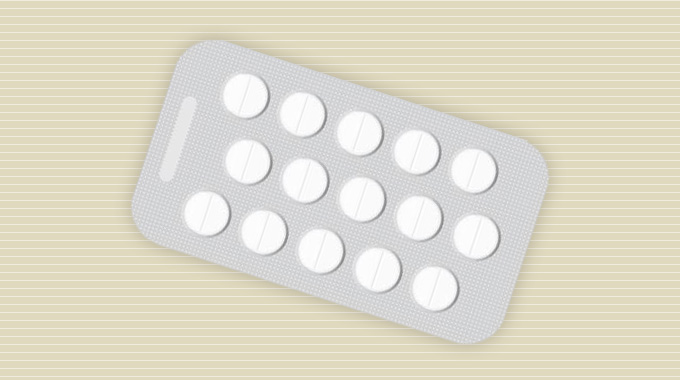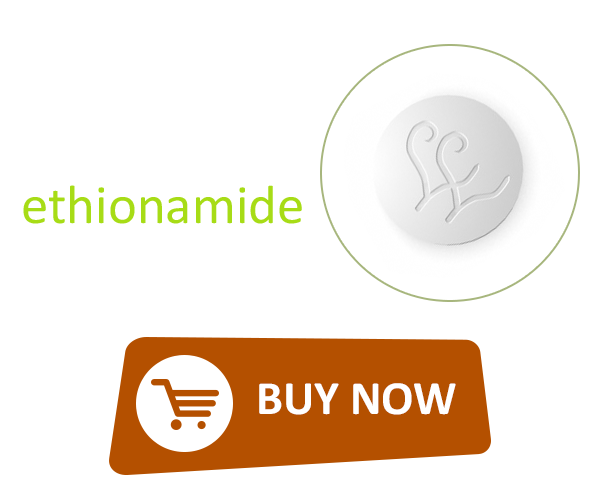Trecator (ethionamide)
Trecator is a type of medication that is used for treating tuberculosis (TB). There are many other uses of this medication which may not be listed in this medication guide. For the right treatment of tuberculosis, it should be had in the right time. The doses mustn’t be skipped. This drug should only be taken with a doctor’s prescription.

Dosage
The dosage of Trecator (ethionamide) can vary depending on several factors, including the individual's age, weight, medical condition, and the specific condition being treated. It is crucial to follow the dosage instructions provided by your healthcare professional or the prescribed label.
Typically, the recommended starting dosage for adults is 250 to 500 milligrams (mg) once daily, preferably in the morning. However, your doctor may adjust the dosage based on your specific needs and response to the medication.
Composition
The generic name of trecator is ethionamide. The chemical name being 2-ethylthioisonicotinamide. It is a nonhydroscopic compound, yellow in colour. The inactive ingredients in the trecator tablets are:
- Titanium dioxide
- Talc
- Silicon dioxide
- Povidone
- Polyvinyl alcohol
- Polyethylene glycol
- Microcrystalline cellulose
- Magnesium stearate
- FD&C Yellow #6
- Croscarmellose sodium
Uses
This medication can be used along with other drugs for the treatment of tuberculosis (TB). The main purpose of this drug is to prevent the growth of bacteria.
Trecator can only treat bacterial infections. It is incapable of treating viral infections (like common cold and flu). The unnecessary usage and misuse can gradually reduce the effectiveness of the drug. With a combination of other drugs, trecator can help in curing a type of serious infection called Mycobacterium Avium Complex-MAC.
Side-effects
Using trecator can give rise to many side-effects that may require medical attention. Some may not require any at all. Gradually when the body starts getting used to the drug, the side-effects may disappear. Some of these side-effects are mentioned below:
- Enlargement of the breasts in males
- Sore mouth
- Vomiting or nausea
- Metallic taste
- Loss of appetite
- Dizziness (while getting up or sitting down)
- Weight gain
- Swelling of the neck (front)
- Skin rash
- Shakiness
- Nervousness
- Increased hunger
- Faster heartbeat
- Puffy, dry skin
- Difficult to concentrate
- Decreased sexual ability among males
- Coldness
- Changes in the menstrual cycle
- Loss of vision or blurred vision, along with eye pain in some cases
- Yellow skin or eyes
- Tingling, pain, numbness, or burning in the feet and hands
- Mood and other mental changes
- Mental depression
- Confusion
- Unsteadiness or clumsiness

Contraindications
There are certain conditions when trecator must not be prescribed to the patient. Some of these medical conditions are mentioned below:
- Allergic reaction to Ethionam,Inh,Pyrazinam
- Habit of consuming too much of alcohol
- Diabetes
- Underactive thyroid
- Pregnancy
- Severe liver disease
- Liver problems
Trecator and pregnancy
The FDA had assigned this antibiotic drug to the pregnancy Category C. There has been evidences of teratogenicity among animal when given high doses of ethionamide. In a study, seven cases reported birth defects. There has been no controlled study of human pregnancy. The manufacturer clearly mentions that this medicine is not for patients who are pregnant. The guidelines issued by Centres of Disease Control, Infectious Diseases Society of America, and American Thoracic Society state that pregnant women should avoid this drug.
Some frequently asked questions about Ethionamide
What is ethionamide?
Ethionamide is an antibiotic medication used in the treatment of tuberculosis (TB). It is classified as a second-line medication for TB treatment.
How does ethionamide work?
Ethionamide works by inhibiting the growth and reproduction of the bacteria that cause tuberculosis. It does this by interfering with the synthesis of certain proteins essential for the bacteria's survival.
What conditions are typically treated with ethionamide?
Ethionamide is primarily used to treat tuberculosis, particularly when the bacteria causing the infection are resistant to first-line TB medications or when alternative treatment options are necessary.
How is ethionamide taken?
Ethionamide is usually taken orally in the form of tablets or capsules. The specific dosage and frequency of administration will be determined by your healthcare provider based on your condition and individual needs.
Are there any common side effects of ethionamide?
Yes, ethionamide can cause side effects. Common side effects may include nausea, vomiting, diarrhea, abdominal pain, headache, dizziness, and changes in taste or appetite. It is important to report any concerning side effects to your doctor.
Can ethionamide interact with other medications?
Yes, ethionamide can interact with certain medications. It is important to inform your healthcare provider about all the medications, supplements, and herbal products you are taking to avoid potential drug interactions.
Can ethionamide be used during pregnancy or while breastfeeding?
Ethionamide should be used with caution during pregnancy or while breastfeeding. The risks and benefits should be carefully evaluated, and the medication should only be used if the potential benefits outweigh the potential risks.
Can I stop taking ethionamide if I feel better?
No, it is crucial to complete the full course of ethionamide treatment as prescribed by your doctor, even if you start feeling better. Stopping the medication prematurely can lead to incomplete eradication of the bacteria and increase the risk of developing drug resistance.
Are there any precautions or warnings associated with ethionamide?
Yes, there are precautions to consider. Ethionamide may cause liver toxicity and may require regular monitoring of liver function. It can also interact with certain medical conditions and medications. Inform your healthcare provider about your medical history and current medications before starting ethionamide.
How should ethionamide be stored?
Ethionamide tablets or capsules should be stored at room temperature, away from moisture and heat. Keep them out of reach of children and dispose of any expired or unused medication properly.


